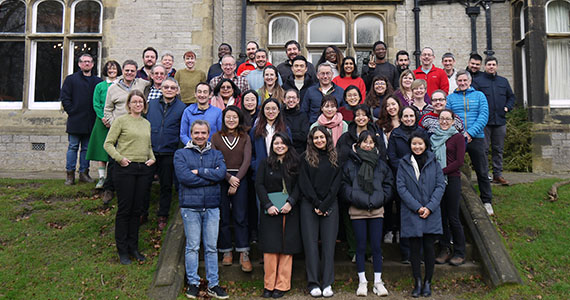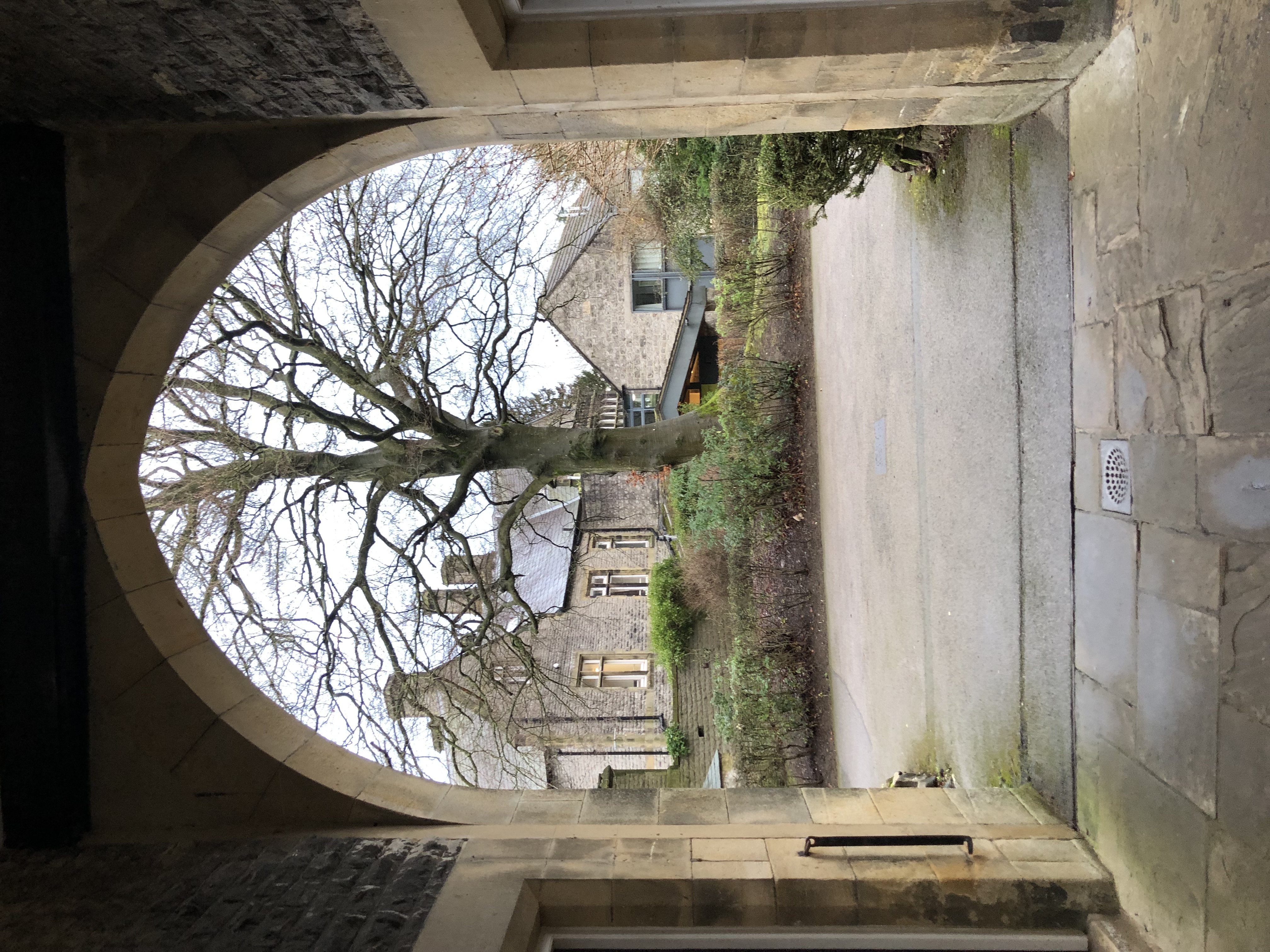Here to Hope 2024: The Centre for Industrial Sustainability’s retreat returns

The IfM’s Centre for Industrial Sustainability’s much-missed retreat returned to the Peak District this January. It offered participants an opportunity to take a step back from their day-to-day lives in academia and industry to examine the bigger picture of industrial sustainability research and practice.
For the first time since the pandemic, new and old friends of the Centre for Industrial Sustainability (CIS) gathered at Losehill Hall, a Gothic mansion converted to a youth hostel, in the Peak District for a week of inspiration, conversation and collaboration. A total of sixty-five individuals with different backgrounds attended the event. The majority of participants were PhD students, postdocs, and faculty members who were also joined by sustainability practitioners representing various industries, from start-ups to big multinationals. Throughout the week, the youth hostel became a central hub for interdisciplinary thinking about sustainability in industry, providing inspiration and a sense of community.
"The retreat does not have one particular objective," says CIS’s Professor Steve Evans, who has organised the retreat together with colleague Ian Bamford since 2012. "Have fun. Work with nice people. Save the planet. That’s my mantra, and that’s what we do here. It’s impossible to pin down an objective because the retreat delivers multiple objectives, and they change with each iteration of it.
"Today, industry 'gets' sustainability, and any manufacturer worth its salt has a sustainability strategy. Where sustainability researchers and enthusiasts once pressured the industry to think about sustainability, the tables have turned and sustainability expertise is in high demand," he says.
Ian explains: "We offer a meeting point between academia and industry where participants can draw on the amazing diversity of expertise in the room to create useful, practical solutions for sustainable industrial systems."
Have fun, save the planet
The agenda is initially empty, but participants create a structure to meet their individual needs throughout the week. During the event, attendees participated in a wide variety of sessions, and there was a full day devoted to exploring the common challenges set out by the representatives from industry. Among the topics covered were change, measurement of sustainability metrics, regenerative manufacturing, and digital technologies. How do we encourage companies and consumers to change behaviour in more sustainable directions and how do we measure sustainability performance? What would a regenerative manufacturing system look like? What role do digital technologies have to play in sustainable manufacturing? These were among the many questions participants had to grapple with.
It did not take long for smaller discussion groups to emerge, complementing the plenary sessions. The mix of perspectives from academia and industry enabled the kind of informed, dynamic conversations needed to effect practical change in industrial systems. At the time of writing, at least one collaborative paper is in the works as a result of the retreat, and there is great potential for more collaborations down the line.
Natasha Lyth, Sustainability Manager at Sheffield-based manufacturer Gripple said: "I found the experience a really insightful and motivational way to see what the future holds for sustainability and industry. To be able to collaborate and share thoughts with a group so knowledgeable about the subject and leading research in the area was invaluable and gave me a fresh outlook on our challenges at work. In short, it was great."
A different way to meet
In 2011, the University of Cambridge received funding to set up the National Research Centre for Innovative Manufacturing in Industrial Sustainability. Sharing the money with other universities, helped establish the foundations of an emerging network for sustainability research and knowledge exchange. Initially, only about 10 people were involved, which meant that their meetings could fit around a table down the pub. As the network grew, they had to think of a different way to meet — without sacrificing the convivial and democratic feel of the group. The following year, the retreat was born.
"There is a need to have safe disagreements to challenge our thinking, and we have achieved that with the retreat format," says Ian. "We are challenged to change our minds or develop the way we think — those are some of the things that come out of this, and I believe that’s why we leave feeling refreshed."
Annabelle Pask, Product Design Engineer at furniture manufacturer Vitsœ, found the retreat very useful. "Having attended Here to Hope, I feel more inspired and motivated to do better. At Vitsœ, our aim is to allow more people to live better, with less, that lasts longer. Therefore, 'better' is an objective of all my work and Here to Hope was an invaluable opportunity to listen to those at the forefront of academic research and to other industrial perspectives on sustainable manufacturing. It was wonderful to learn from each other and to leave with the collective drive to improve."
Investing in community
Inviting busy people to take up to a week out of the office to attend an event speaks of confidence in the value of what you can offer. This is even more the case when there is no pre-determined plan, yet participants return time and time again. The focus on community seems to play an important role.
"Let’s go back to, I don’t know, 1993. I am doing a project with a couple of other universities, so I’ll hire a cottage in the hills," says Steve. He continues: "We spend three or four days there, we cook for each other, and come away with a clear understanding of what the different collaborators will be doing for the next year or two. That significant investment in time ended up delivering better quality projects that were more enjoyable to be part of."
According to Steve, people come to the retreat to feel the zeitgeist and feel safe sharing ideas. If you have been, you will be invited back. You can also extend the invitation to others. This is how the community has grown since it was first set up, and this year’s numbers were the highest yet.
As Frances Bycroft, CIS Administrator, perceptively phrased it in the invitation, "The aim is to have us all leave wishing that we could stay for longer, and full of ideas and friendships to guide our future."

If you want to find out more about the retreat or how to get involved with the Centre for Industrial Sustainability , get in touch with Steve (se321@cam.ac.uk) or Ian (imb31@cam.ac.uk).










